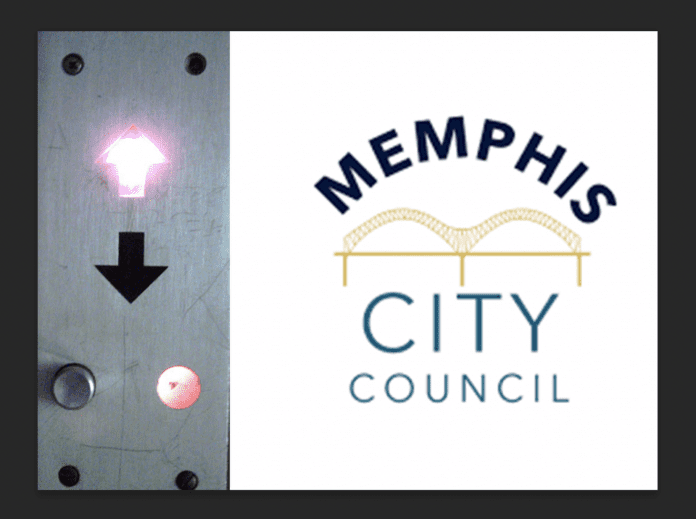As the clock winds down on the city’s legislative calendar – and terms in office – the Memphis City Council has given first-step passage to a proposed ordinance to adjust the mayor’s salary.
The affirmative vote (Nov. 21), without discussion, on the proposal was approved on the first of three required readings before it would become effective, presumably when mayor-elect Paul Young takes office Jan. 1.
Council members also approved an add-on ordinance for a referendum that lets the council set its own salaries, as well as city directors and other appointees.
With the raise-in-waiting, Young’s salary would boost to $210,000 salary from $170,817, a 23 percent increase of over what out-going, term-limited Mayor Jim Strickland now makes.
A provision in the City Charter prohibits salary changes while their term is under way.
“If it’s going to be an increase, it has to be increased before Jan. 1,” cautioned council attorney Alan Wade.
Council Chairman Martavius Jones said Young had no prior knowledge of the proposed raise.
“In the spirit of full transparency, Mr. Young and I have had some meetings, but we never even discussed this out. It was never a point of discussion,” said Jones.
After the add-on agenda item was moved to the consent agenda, it was approved without discussion during the committee executive session.
While the council is within its power to adjust the mayor’s pay, the latter charter amendment will likely arouse more debate – within the council, as well as the court of public opinion.
“The problem is what you’re going to get from the public,” explained Wade. “You get to set your own. That’s why you have these things talking about when you can do it, you can’t do it during your term of office, but it will be for the next term.
“You’ve got to get into the weeds of how you want to word this, because some of this may have some impact on whether the people will accept, or they won’t.”
Jones countered, arguing the referendum would allow voters to hold elected officials accountable.
“That’s all this is, is being accountable to the public that trusted you. That’s all that this does.”
Historically, that didn’t often work in council members’ favor.
In the late 1980s, the Memphis City Charter was amended. Voters approved a referendum to match council members’ pay with their counterparts on the Shelby County Commission.
“There is an ordinance in place that ties your salary to whatever the county commission salaries are now,” explained Wade.
Prior to the change, the question of pay raises was left up to the voters.
In the years between the adoption of the current council/mayor form of government in 1968 and the approved referendum tying council pay to commission pay, voters rejected 20 raises. The rate stalled at $6,000.
Council members make about $30,000 per year.
If the referendum passes, the directors’ raises would be effective July 1, 2024. Unlike the mayor, their salaries cannot be set during the middle of a budget season.
“What we are doing under this ordinance, it’s necessary to get it done before we have a new mayor,” said Wade.
Council member Chase Carlisle proposed a “spot-bonus” to incoming directors, to bridge the gap.
The questions could also join a potential slate of referendums on the 2024 ballot.
A vote on another pair was halted during the full council meeting. Carlisle, who sought the vote of the full council, asked for a pause after Councilman Dr. Jeff Warren excused himself to attend his medical practice.
“Based on extenuating circumstances by having a member leave the body on a significant referendum ordinance, I move that we hold (the) items… until our next available meeting on Dec. 5.,” asked Carlisle.
The first would allow City of Memphis partisan primary elections, while the latter would return the runoff provision for citywide races – the mayor and the six council seats in the two super districts.
All referendum ordinances are sponsored by Jones, who is wrapping up his second and final term.



